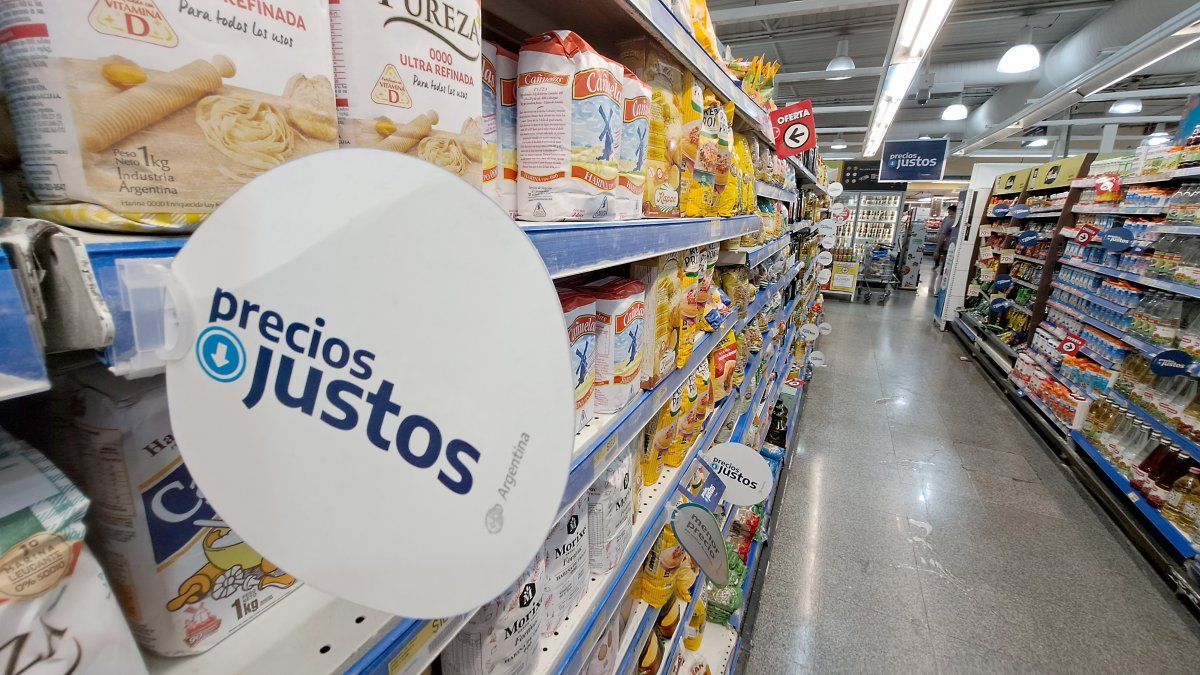Both the Government and the private sector were “satisfied” with the operation of Fair Prices in the gondolas, which implies the freezing of almost 2,000 products for four months, and the rest of the more than 30,000 items with a cap of increases of 4% monthly. The novelty of the last few days is that more and more companies approached the Secretary of Commerce, headed by Matías Tombolini, to leave their adherence to the program in writing.
The companies escaped the signature, but according to official sources, more than 70% of the companies have already signed, since they are part of Fair Prices 114 and signed more than 80, including companies such as Arcor, Molinos or Mastellone. They even signed the supermarkets, which need access to the dollar to import some food, such as avocados or tuna. Although there are some of the most important food companies in the country that have not yet done so. The rejection has to do with the fact that there are multinationals that cannot sign price freezes. “The legal manager has to look the other way,” they told from a company. In addition, because leaving the signature in writing means that not complying implies fines, which have been increased in recent weeks.
But also, much of the reluctance had to do with the fact that the agreement leaves in writing the part that the companies have to comply with: the supply, the fixed prices, and the signage. But not the part to which the Minister of Economy, Sergio Massa, personally committed: greater facilities to import. “The incentive to sign is that Massa has the complete button panel,” they told from a food company. With the unification of ministries with the arrival of Massa, and the change in the import system, which is now called SIRA, Economy ensured better coordination.
In fact, one month after the implementation of Fair Prices, companies are waiting for access to dollars, and there are doubts about how it will work. From a company they assured that they expect to be given access to an advance of dollars for the total imports of inputs they need to produce. “Supposedly it should be automatic,” they claimed. From another, they assured that the flexibility will consist of a reduction in payment terms, which come out with between 60 and 180 days. They detailed that the first thing to be authorized is “urgent”, and that they are already sending import projections for 2023. “We hope that the projections for the first four-month period, which are when the agreement is in place, have a shorter term or eventually allow some advances, it is something that has not been fully discussed”, revealed a private sector source. While, From Economy they assured: “There will be a reduction in the terms of access to the dollar, it is beginning to become operational, once they are within the agreement.”
In addition, the food companies have doubts about what the access to the dollar will be like for companies from which they source some inputs. “They talked about the approval of SIRAS also for suppliers,” explained a private source.
The Government hopes that inflation in November “begins with 5”. The official data from INDEC will be released on Thursday of next week. Meanwhile, in Economy they held meetings with sectors of widespread inputs to try to achieve a “basket” of products that can be frozen, even without success. It is something that the other three administrations of the Secretariat of Commerce that this Government had had already tried, without success. Finally, Next week Economy aspires to have two meetings: the first of the Price Observatory, after its formation. And a meeting with the tourism sector, to add Fair Prices to accommodation and gastronomy.
Source: Ambito
David William is a talented author who has made a name for himself in the world of writing. He is a professional author who writes on a wide range of topics, from general interest to opinion news. David is currently working as a writer at 24 hours worlds where he brings his unique perspective and in-depth research to his articles, making them both informative and engaging.




